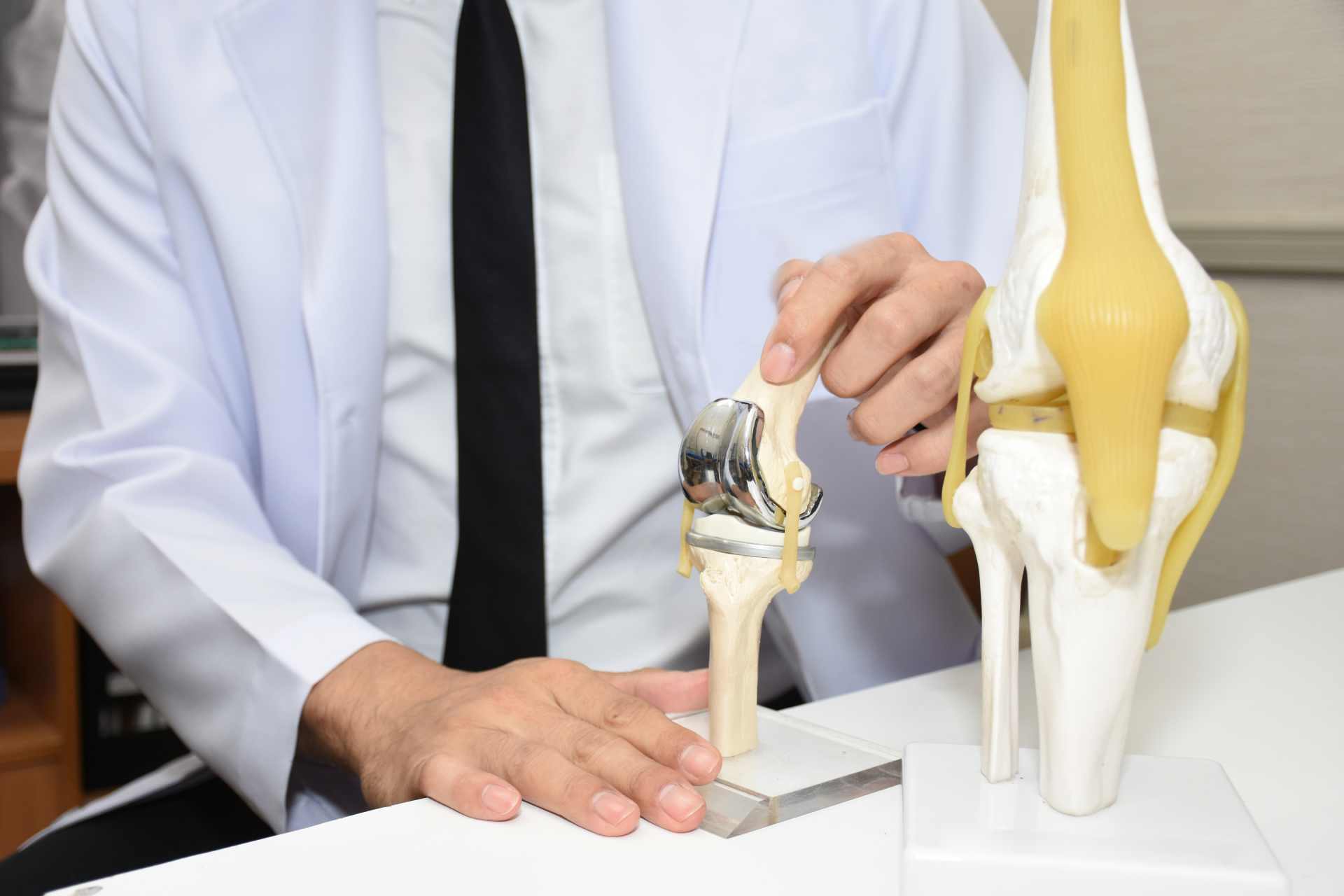5 Things You Need To Know About Knee Replacement Surgery

Things to know about knee replacement surgery:
#1 What could lead to knee replacement surgery?
Various factors could lead to a knee replacement surgery. The primary factor is discomfort, restrictive movement of the knee and compromised ADL.
Mostly seen in elderly patient in the age group of 50 to 60 years where the cause is age related degeneration of joint leading to primary osteoarthritis. In young group of population where there is underlying disease such as rheumatoid arthritis or any other inflammatory arthritis, joints get damaged secondary to other underlying disease.
Athletes and players who practise active sports are prone to knee injuries if they do not strengthen their knees. If exertion on the field is excessive and knees are weak, it could lead to ACL tear. Many players who get an injury while being in action on the field get knee surgeries.
Any of the below-stated factors could lead to a knee replacement surgery requirement.
- Knee discomfort or stiffness that makes it difficult to walk, move upstairs, get in and out of automobiles, or get out of a chair.
- Knee discomfort that persists even when sleeping or resting is moderate.
- Chronic knee edema and inflammation that does not resolve with medicine or rest.
- A visible arch on the inside or outside of the knee referred to as a knee deformity.
- Depression characterised by an unwillingness to engage in everyday or social activities.
#2 What are the different types of knee replacement surgeries?
- Patellofemoral Replacement: This is recommended for people with chronic knee cap arthritis. It replaces only the undersurface of the knee cap and the groove the kneecap rests on.
- Partial/unicondylar Knee Replacement: This surgery may be an option if your arthritis affects only one side of your knee. It's only appropriate for you if your knee ligaments are robust and the rest of your cartilage is normal. A smaller incision is required for a partial knee replacement than a total knee replacement.
- Complex Knee Replacement: If you have severe arthritis or have had two or three knee replacement procedures, this treatment may be necessary.
- Cartilage Restoration/chondrocyte transplantation: In some cases, a live cartilage transplant or cells that develop into cartilage can be used to repair an isolated region of damage or wear on the knee.
- Complete Knee Replacement: This is the most typical variant. The surfaces of the thigh and shin bones that attach to the knee are replaced by your surgeon.
#3 What does recovery post knee replacement surgery look like?
- With the help of a walker or crutches, most patients are up and walking within 24 hours.
- A physical therapist will help you bend and straighten your knee after surgery, get out of bed, and eventually learn to walk with your new knee. This is usually done on the same day as your surgery.
- Most patients are released from the hospital 2–3 days following surgery. It is typically advised to be on complete bed rest for a few days.
- Therapy will continue routinely for many weeks after you return home. Specific exercises will be performed to enhance knee functioning.
- Your doctor may recommend that you initially spend time in a rehabilitation or nursing facility if your condition requires it or if you don't have the help you need at home.
- Depending upon the severity of the injury, most people recover within three months, but it could take about 6-7 months for people to recover fully.
#4 What are some of the risks and complications associated with knee replacement surgery?
Every procedure has the potential for problems. Following knee replacement surgery, there is a chance of:
- Stiffness in the knees.
- High level of pain.
Most people do not report any serious issues and are glad they got their knees replaced. The healthcare staff will collaborate with you to keep the dangers minimum.
What are some of the alternatives to knee replacement surgery?
There are several non-surgical ways of keeping your knees healthy and avoiding surgeries. Stretching and strengthening on a regular basis help the most. The following are alternatives to surgery:
- Weight reduction.
- Anti-inflammatories drugs.
- Alternative therapies such as acupuncture.
- Steroid injections/hyaluronic acid (gel) injections/autologous cytokine rich serum injection(ACRS).
In conclusion, it would be correct to say that prevention is better than cure. The chances of knee replacement surgery can be reduced by maintaining a healthy lifestyle. It is recommended to keep in contact with a doctor to be updated on your well-being and take precautions. Knee replacement surgeries do help those who have severely damaged their knees.






